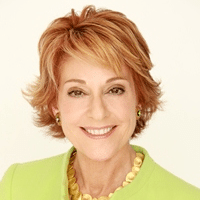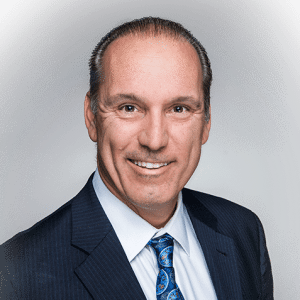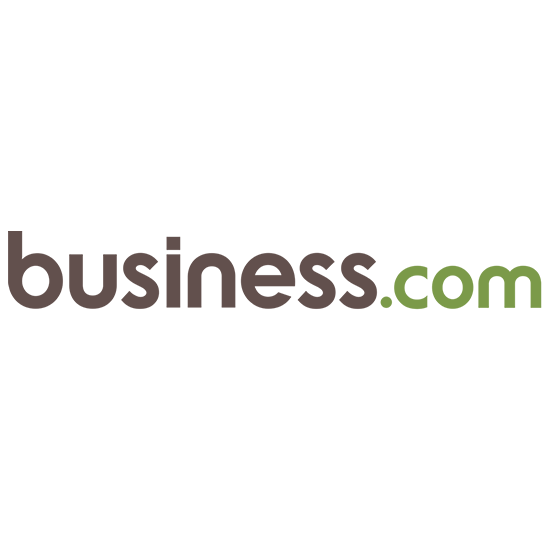Both business owners will need to plan ahead for their retirement. However,”preparation for retirement” is a wide concept that has a lot of moving parts, such as whole life insurance, succession planning, employee retirement accounts, and more. To assist, we talked with industry experts about the way business owners must plan for retirement.
This article lists 25 professional small company retirement plan tips for small business owners:

1. Utilize a Cash Balance Plan
Andrew Bellak, Founder & CEO, Stakeholders Capital
A cash balance plan is a defined-benefit pension plan for those that make a lot and can spare a lot. Most financial planners and CPAs aren’t acquainted with it. The cash balance plan is maintained in an individual account basis, like a defined-contribution plan, meaning that fluctuations in the value of the participant’s portfolio don’t affect the annual contribution amounts.

2. Consult with a Financial Expert
Paul Davidson, Director of Human Resource Product Management, Paychex
Most small business owners aren’t always experts in financial planning, but you do not need to be. A financial adviser — from some other financial institution, such as the local bank — will help you take another step using a retirement plan. A plan supplier can help you through the various plans offered and help you identify the most financially viable and ultimately beneficial retirement choice based on your situation and taste.

3. Use Cash Value Life Insurance
Greg Boots, Retirement Income Certified Professional, Executive Wealth Solutions, LLC
Cash value life insurance is a way to use the cash value of a life insurance policy because a tax-sheltered investment in which the interest and earnings are not taxable. This allows for quick cash accumulation whilst decreasing the insurance costs. By designing the policy to quickly accumulate cash, the funds within the coverage gets the opportunity to compound tax-free from the years before our retirement.

4. Take a Balance of Savings & Investments
Pamela Yellen, Writer, Bank On Yourself
Know the difference between saving and investing, and act accordingly. To save means placing money you can not afford to lose at a vehicle that is secure and has guaranteed but slow expansion. To invest means putting money in a car that has a certain quantity of danger. A gain might be high, but it is not guaranteed — you will possibly lose your initial investment. Having both is not only recommended — it’s necessary.

5. Start Crafting a Succession or Transition Plan
Ryan McGuire, Financial Advisor, Wipfli Hewins Investment Advisors
Take the initiative to begin crafting a succession or transition plan. It isn’t important if you’re old or young, if you want the business to smoothly succeed after you leave, it is important to have at least a rough outline of how you’d ideally like to see the company work through the ultimate transition. Making programs as early as possible will help your company sooner rather than later.

6. Don’t Use Your Retirement Funds Early
Jim Slowik, Chief College Funding Strategist, My College Planning Team
Whether you have to pay for your kids’ college or you want funds to start a business, do not make the mistake of believing you are getting a break from the government when you use your retirement budget for all these financial needs. Consider your other options to get funds to cover these needs, and attempt to leave your retirement funds intact.

7. Research Your Retirement Plan Options
Benjamin Sullivan, Client Service & Portfolio Manager, Palisades Hudson Financial Group
The best retirement program for entrepreneurs is specific to every one’s individual circumstances, therefore it’s important to research different options before deciding on which one’s right for you. Some factors you should consider include the amount of income you expect to earn over time, how much you need to contribute, and the amount of complexity involved with administering a specified plan, which typically increases costs.
To learn more, read our article on the best small business retirement plans.

8. Keep a Diversity of Funds
Catherine Scrivano, President, CASCO Financial Group
The concept of not putting all your eggs in one basket is particularly applicable to business owners. If you devote your fiscal resources to the company alone, it will leave you fully exposed to many different danger. Your financial portfolio ought to be appropriate to your time horizon, risk tolerance, and targets, and provide enough diversity to reduce vulnerability to the achievement or failure of any part of the portfolio.

9. Follow the”Rule of 100″ for Your Retirement Savings
Troy Bender, President & CEO, Asset Retention Insurance Services Inc..
The”rule of 100″ recommends that you invest 55% of your assets in danger and save 45% at which they’re safe. The secure component is essential for success because if done correctly, it will ensure you feel much more assured with the 55% at risk. Putting all your retirement funds at risk, no matter how high its potential for return, is highly discouraged.

10. Use Self-Employed 401k Plans
Jeffrey Hensel, Broker Associate, North Coast Financial
If you are a self-employed person or a business owner with no other workers, making contributions to some Self-Employed 401k plan is suggested. You may enjoy tax benefits like tax-deductible gifts and tax-deferred growth — by contributing to the plan, you can save a massive amount of taxes each year. You also have a wide range of investment options such as mutual funds, stocks, bonds, ETFs, and FDIC-insured CDs
For more information, read our article on Solo 401(k)s and also the most effective Solo 401(k) providers.

11. Strengthen Your Business’s Capability to Run Without You
Karen Wylie, M.Ed. & Ed.D., The Midlife Entrepreneur
It’s important to prioritize preserving the investment you’ve already made in making your business. Make sure to take action to fortify your business’s ability to conduct and survive with no. Train a trusted successor long before you even consider retiring. Take time off from your business but ensure your principal business income remains steady and its future assured by putting the right people to handle it with no.

12. Consult a Professional to Plan Your Exit Strategy
Joel Keylor, CEO, Tresle Inc
If you are planning to sell your business when you retire, it is best to float your exit strategies as early as possible. Consult with an expert to help you with methods to increase the value of your enterprise and make certain that you can sell it for the ideal price at the right moment. There are a lot of ways for business owners to come up with a plan for the the sale of the business itself and post-sale income positions.

13. Save at Least 10 to 15 Percent of Your Pre-Tax Income
Abby Rose Dalto, Bookkeeper and Staff Accountant, Westwood Tax & Consulting LLC
Most financial experts recommend putting off at least 10 percent to 15% of your pre-tax earnings for your retirement savings every year. However, the exact amount that you would like to be saving really depends upon your own life expectancy and the way you believe that’ll be spending your retirement. It’s encouraged to save more than 15% now if you expect to be needing more money for your future expenditures.

14. Start Purchasing As Early As Possible
Joshua Weiskopf, CEPA, Edelman Wealth Management Group Inc..
Start planning for your retirement as early as possible. Time is very often your most precious asset and sadly, most small business owners get caught up by growing their company they tend to overlook this. The earlier you start, the greater your retirement fund will increase due to the way compound interest functions.

15. Beginning a Side Hustle Business
Kristen Edens, Business Writer & Personal Finance Blogger, Boomer
Postpone access to a social security and retirement funds from beginning a side hustle. This gives your retirement funding more time and opportunity to grow through compound interest. This allows you to keep on working on your business even after retirement, but make sure that you still like what you do and you are physically capable to.

16. Consider devoting to a SIMPLE IRA
Victor Miltiades, Account Executive, MSL Group
A Savings Incentive Match Plan for Employees (SIMPLE IRA) lets you contribute up to $12,500 of your net earnings from self-employment, plus either a 2% fixed participation or a 3% matching contribution. By making contributions to SIMPLE IRA, you will be able to maximize your savings for retirement.
To learn more, read our article on SIMPLE IRAs.

17. Learn to Trade for Gain
Pablo Solomon, Award-Winning Artist, PabloSolomon.com
Discover the art of purchasing, selling, and trading for profit. There’s no better way to make extra cash than to buy, sell, and exchange a variety of things where you are familiar. The money you make on sideline sales and trades can be a fantastic addition to your investment and savings plans. The artwork of trading can function as a hobby that offers an additional revenue source, but it can be very risky.

18. Establish an Automatic Withdrawal to Your Retirement Account
Allen Michael, Owner, The Stick Vacuums
As a small business operator, you can not forget to save for your savings because you don’t have an employer-sponsored retirement plan. To avoid this, install an automatic withdrawal from your savings accounts (or citizenship accounts, if you’re on your business’s payroll) to be spent straight to your retirement account. It is like paying your retirement account as you pay your regular bills each month.

19. Use a SEP IRA
A SEP IRA or Simplified Employee Pension Plan is for self-employed individuals and small-business owners with a couple of workers. Contributions are made by the employer and are tax deductible as a business investment. It’s easy to set up and maintain, and there’s no first setup or yearly maintenance fee.
Have a look at our post on SEP IRAs for more information.

20. Understand What Your Fears are Face Them
Most small business owners possess common anxieties, like running out of fiscal resources later in life, getting seriously ill, or realizing their monthly income in the time of retirement isn’t sufficient to fulfill their fundamental needs. It is important to know what your fears are and confront them prior to retirement. This permits you to plan accordingly and invent a viable solution that will lead to a comfortable life during retirement.
![]()
21. Calculate How Much You Need to Retire
Calculate a ballpark figure for a lump sum amount you will need to retire. This allows you to make an estimate as to how much you will want to live a nice life if you are not working. You should include your regular expenses and provide a buffer unseen expenses such as potential medical bills.

22. Invest in a Mixture of Stocks and Bonds
You need to sensibly select investments that will grow and chemical your own retirement funds. It is best to choose a mixture of bonds and stocks. Stocks offer higher long-term average returns, but with higher risk. Bonds have lower average long-term annualized growth rate, but it’s lower cost volatility.
![]()
23. Take Advantage of Being a Business Owner
As a small business operator, there could be a great deal of opportunities open to you. There are financial institutions searching for business owners keen to invest in their 401ks or IRAs and will probably provide superior benefits and rates. Do your research and speak with the different types of financial institutions in your region to check whether they provide such opportunities.

24. Keep an Emergency Fund
It’s ideal to keep an emergency fund and make sure that it remains intact for emergency expenditures your company may encounter. With an emergency fund, you are going to be confident the undesirable and unexpected events will not infringe on your retirement plans. Figure out methods to employ strategic cost management through the hard times in your business and use your emergency fund just when emergency.

25. Find out How to Value Your Business Properly
Many small business owners do not actually know the value of their business. Business owners have a tendency to overestimate the value of their company, aiming to make around 6 to 7 days net profit. On the other hand, the actual final cost for the sale of a workable business is probably around 2-3 times net profit, plus the asset value. Unique assets and/or intellectual property could command much higher selling prices.
Read our informative article on how to appreciate your business to discover more.
Bottom Line — Small Business Retirement Plan
Entrepreneurs should earn a small company retirement program a priority. As a small business owner, you will come to need to retire in your business and you should ensure that you have sufficient funds to cover your financial needs during your retirement years. You can use the aforementioned 25 expert small business retirement plan strategies for small business owners as a guide to help you make wise decisions for your future.

